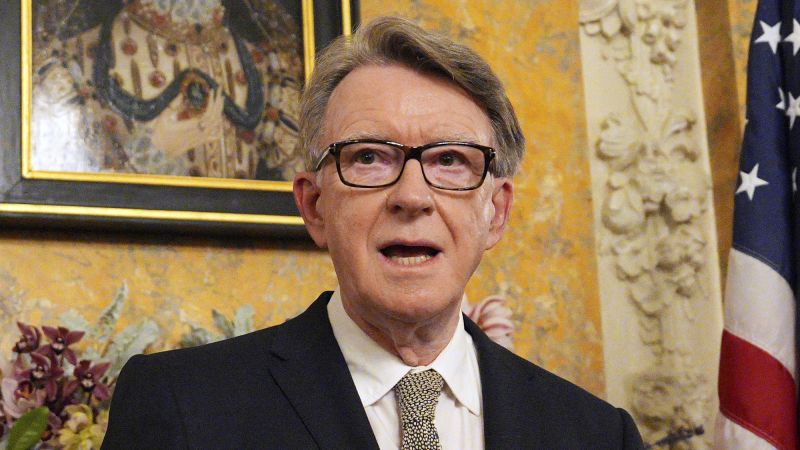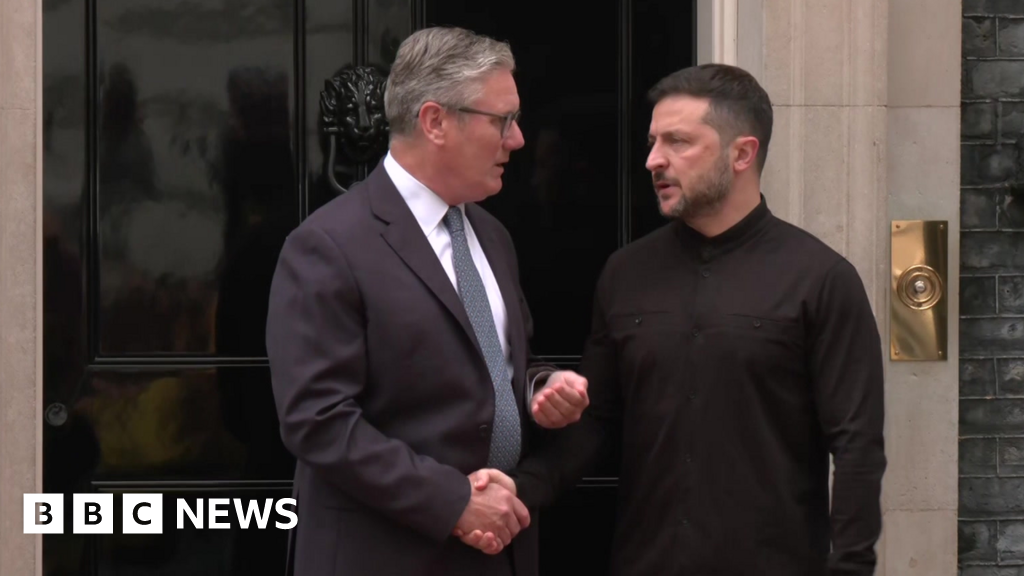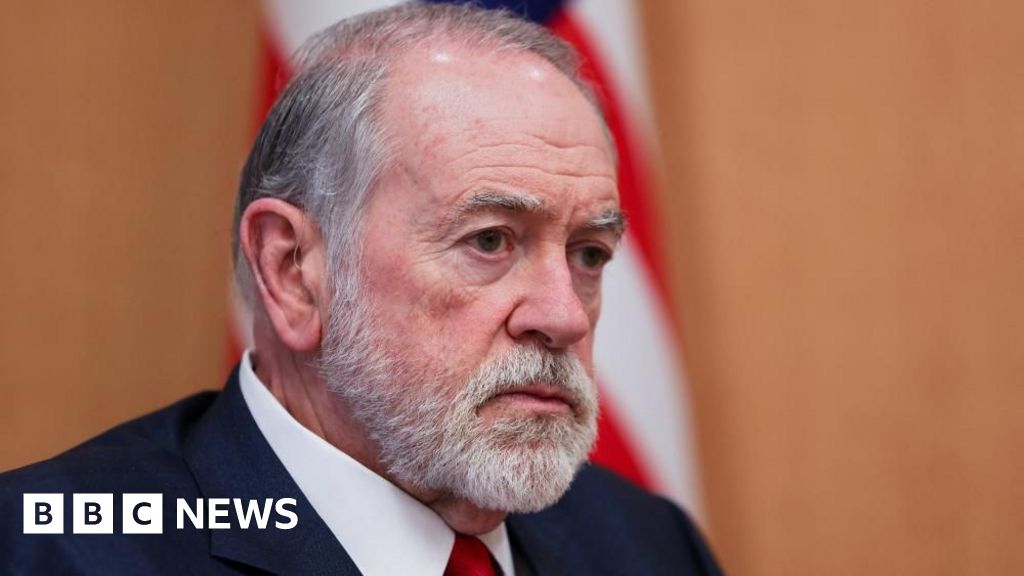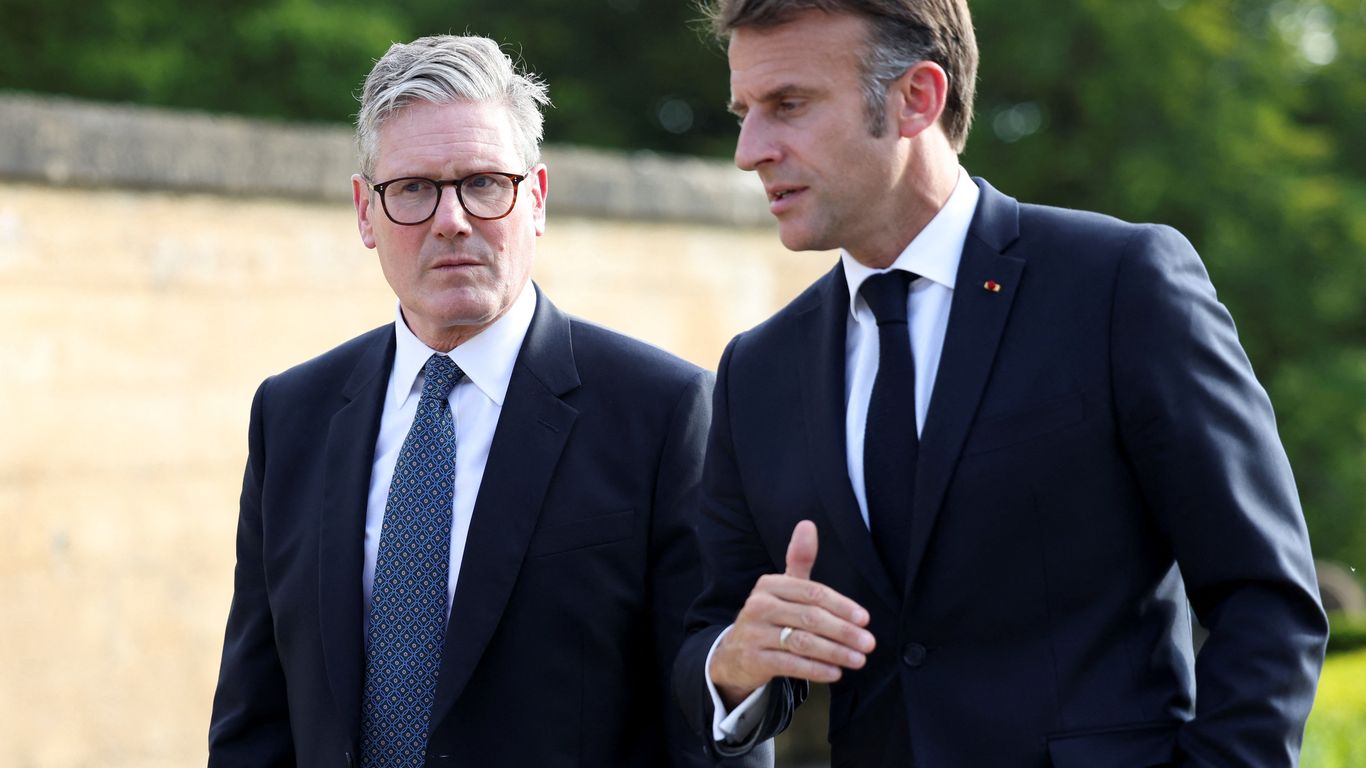UK Ambassador Fired Over Ties to Jeffrey Epstein

Introduction
On Thursday, the UK made headlines when it fired its ambassador to the US, Peter Mandelson, due to his ties to convicted sex offender Jeffrey Epstein. This decision has caused more trouble for Prime Minister Keir Starmer, who is already facing a range of challenges.
Key Details
Peter Mandelson's links to Jeffrey Epstein were brought to light after a photo of him and Epstein surfaced online. This sparked controversy and calls for Mandelson's resignation. However, the ambassador denied any knowledge of Epstein's crimes and claimed that he had never met him. The decision to fire Mandelson was made after an investigation revealed that he had indeed met Epstein in the past and had even accepted a ride on his private jet.
Impact
This scandal has caused a major blow to the UK's diplomatic relations with the US. It has also added to the already mounting pressure on Prime Minister Keir Starmer, who is struggling to handle the fallout from Brexit and the COVID-19 pandemic. This decision to fire Mandelson highlights the government's commitment to maintaining ethical standards and holding its officials accountable for their actions, regardless of their position.
About the People Mentioned
Peter Mandelson
Peter Mandelson, born on October 21, 1953, in London, is a British politician known for his influential role within the Labour Party and the UK government. He served as Member of Parliament for Hartlepool from 1992 to 2004 and held several senior cabinet positions including Secretary of State for Trade and Industry (1998), Secretary of State for Northern Ireland (1999–2001), and Secretary of State for Business, Innovation and Skills (2008–2010). Mandelson was a key architect of the "New Labour" movement alongside Tony Blair, which transformed the Labour Party in the 1990s into an electoral force emphasizing economic and social liberalism. From 2004 to 2008, he served as European Commissioner for Trade, playing a significant role in shaping EU trade policy. In 2008, he was appointed a life peer in the House of Lords, though he has since taken indefinite leave from the chamber. In December 2024, Mandelson was appointed UK Ambassador to the United States, a position he held from February to September 2025 under Prime Minister Keir Starmer. His tenure was notably brief and ended amid controversy linked to his associations with American financier Jeffrey Epstein. Beyond politics, Mandelson co-founded Global Counsel, a global public policy advisory firm. His career reflects notable achievements in government, European trade, and diplomacy, though it has also been marked by contentious episodes. Mandelson remains a prominent figure in British political history for his strategic influence and role in modernizing the Labour Party[1][2][3][4].
Jeffrey Epstein
Jeffrey Edward Epstein (January 20, 1953 – August 10, 2019) was an American financier and convicted sex offender whose life and crimes attracted intense media scrutiny and public controversy[1][3]. Born and raised in Brooklyn, New York, Epstein initially worked as a teacher at the Dalton School in Manhattan before transitioning to a career in finance, joining Bear Stearns and later establishing his own investment firms[1][2]. He managed the wealth of billionaire Leslie Wexner, amassing significant personal fortune and cultivating a social circle that included politicians, celebrities, business leaders, and even royalty[2][3]. Epstein’s professional achievements were overshadowed by criminal allegations. In 2005, police in Palm Beach, Florida, began investigating him after a parent reported he had sexually abused her 14-year-old daughter[1]. Federal authorities later identified dozens of girls, some as young as 14, whom Epstein had allegedly abused[1][6]. In 2008, he pleaded guilty in Florida state court to procuring a child for prostitution and soliciting a prostitute as part of a controversial plea deal, serving nearly 13 months in custody with work release privileges[1][2]. Despite his conviction, Epstein avoided more severe federal charges at the time. In July 2019, Epstein was arrested again on federal charges for sex trafficking minors in Florida and New York[1][2]. While awaiting trial in a Manhattan jail, he was found dead in his cell on August 10, 2019; the medical examiner ruled his death a suicide by hanging[1][3]. The circumstances surrounding his death, including missing and modified CCTV footage, fueled widespread public skepticism and conspiracy theories[1]. In July 2025, the FBI released surveillance footage supporting the suicide ruling, though questions about the investigation persist[1]. Epstein’s case remains highly relevant due to ongoing lawsuits by his victims, investigations into his associates, and the release of thousands of previously sealed documents in early 2024 that renewed public interest in his network and alleged co-conspirators[2]. His former associate, Ghislaine Maxwell, was convicted of related charges, underscoring the lasting impact of his crimes[2]. Discussions about accountability, the influence of wealth and power, and the treatment of survivors continue to shape the public dialogue around Epstein’s legacy[2][5].
Keir Starmer
Keir Starmer, born on September 2, 1962, in London, England, is a British politician and barrister. He grew up in Oxted, Surrey, with his father working as a toolmaker and his mother as an NHS nurse. Starmer was the first in his family to attend university, studying law at the University of Leeds and later earning a postgraduate degree from the University of Oxford[2][3]. Before entering politics, Starmer had a distinguished career as a barrister. He qualified in 1987 and was appointed Queen's Counsel (QC) in 2002. Notably, he served as the Director of Public Prosecutions from 2008 to 2013, leading the Crown Prosecution Service[2]. He was knighted in 2014 for his contributions to criminal justice[2]. Starmer was elected as a Member of Parliament for Holborn and St Pancras in 2015. He became the Shadow Minister for Immigration under Jeremy Corbyn but later resigned in protest. He then served as Shadow Secretary of State for Exiting the European Union[5]. In April 2020, he was elected as the leader of the Labour Party, winning with a significant majority in the first round of voting[5]. In July 2024, Starmer became the Prime Minister of the United Kingdom following a landslide Labour victory in the general election, replacing Rishi Sunak[1][4]. As Prime Minister, he is focused on implementing Labour's manifesto, which includes objectives related to the economy, crime, healthcare, education, and climate change[1]. His leadership marks a significant shift in British politics, emphasizing national renewal and change[4]. Starmer is married to Victoria Starmer, an NHS worker, and they have two children[4].
About the Organizations Mentioned
UK government
The **UK Government**, formally His Majesty’s Government (HM Government), is the central executive authority of the United Kingdom of Great Britain and Northern Ireland. It is led by the Prime Minister—currently Keir Starmer since July 2024—who appoints ministers to form the Cabinet, the supreme decision-making body responsible for government policy and administration[1][2]. The government operates under an uncodified constitution where executive authority formally rests with the sovereign but is exercised on the advice of the government and Privy Council[1]. Historically, the UK Government evolved as a parliamentary system with roots stretching back centuries, embodying principles like parliamentary sovereignty and ministerial responsibility. Its offices are primarily located in Westminster and Whitehall, often serving as metonyms for the government itself[1]. The government oversees a wide range of functions including economic management (led by the Chancellor of the Exchequer), domestic affairs such as policing and immigration (Home Secretary), foreign relations (Foreign Secretary), health, education, defense, and more[2]. It relies on Parliament to enact legislation and must maintain the confidence of the House of Commons to govern effectively[1]. In recent years, the UK Government has pursued ambitious reforms, especially in **digital transformation** to modernize public services. The 2025 digital government blueprint envisions a future where public services are seamlessly integrated, automated, and digital by design—aimed at improving citizen experience and boosting economic growth through smarter, more productive government operations[3]. National security remains a top priority, with strategic plans focusing on countering threats from state actors like Russia and enhancing military capabilities with digital technologies and intelligence integration[4]. The government’s current agenda includes economic growth, housing development, national security, and climate goals such as becoming a clean energy superpower. It aims to raise living standards and infrastructure investment, reflecting a mission-led approach to governance[5]. Analytical excellence is also emphasized through a structured government analysis function to support evidence-based policy-making across departments[



















